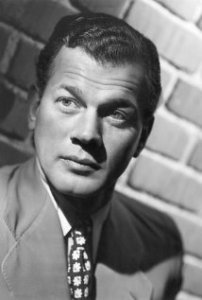Walk Softly, Stranger *** (1950, Joseph Cotten, Alida Valli, Spring Byington, Paul Stewart, John McIntire, Jeff Donnell, Jack Parr) – Classic Movie Review 2024
The 1950 romantic film noir Walk Softly, Stranger stars Joseph Cotten as a small-time crook on the run, who arrives in Ashton, Ohio, claiming to have lived there as a boy but with robbery in mind. He falls for a beautiful disabled heiress (Alida Valli).
Director Robert Stevenson’s 1950 romantic film noir Walk Softly, Stranger stars Joseph Cotten as the hard-man small-time crook on the run Chris Hale, who arrives in Ashton, Ohio, home of the Corelli shoe factory, claiming to have lived there as a boy but with robbery in mind. A charming, smooth-talking gambler, he soon ingratiates himself in the town.
[Spoiler alert] But he surprises even himself by showing his soft and caring side when he falls for a beautiful disabled heiress called Elaine Corelli (Alida Valli), who teaches him the virtue of kindness when his past catches up with him and the cops come after him. And Cotten is finally reformed by the wheelchair-bound woman’s love.
This mix of film noir and romantic melodrama is an odd concoction of tense and moody mystery thriller and sentimental, none-too-convincing, almost Victorian moral fable. Quite slow moving, it proves rather hard going, especially for the cynical minded.
But the two pleasurable stars in a welcome teaming matching their success in The Third Man (1949), a fine cast of fired-up character actors and capable director Stevenson do their very best to raise the level of what eventually turns out to be soft-hearted, woolly-headed material.
Frank Fenton adapts the story by Manuel Seff and Paul Yawitz and writes the reasonably fluent screenplay that’s atmospheric and engrossing for about two thirds of the way. The music is by Frederick Hollander and cinematography by Harry J Wild.
Also in the cast are Spring Byington (shamelessly scene-stealing as the widow Mrs Brentman), Paul Stewart (as Whitey Lake), John McIntire, Jeff Donnell, Jack Parr, Howard Petrie, Frank Puglia, Esther Dale, Marlo Dwyer, Robert Ellis, Bess Flowers, John Merton and Will Wright.
It was the end of an era at RKO Studios as the last film there for famed producer Dore Schary, who did not see eye to eye with RKO owner Howard Hughes and left soon after it was finished completion.
It was filmed in 1948 and copyrighted in 1949, but not released until 1950 when Hughes presumably intended to capitalise on the success of The Third Man.
It was intended as a vehicle for Cary Grant to star under the direction of Alfred Hitchcock with a working title of Weep No More. The film lost an estimated $775,000, making it one of RKO’s biggest flops of the year
It finally had its British TV premiere in July 2003.
Spring Byington (October 17, 1886 – September 7, 1971) was an MGM contract player who appeared in films from the 1930s to the 1960s, Oscar nominated as Penelope Sycamore in You Can’t Take It with You (1938).
Spring Byington and fellow MGM contract player Marjorie Main were said to have had a long-term relationship. Asked about Byington’s sexual orientation, Main replied: ‘It’s true, she didn’t have much use for men.’
© Derek Winnert 2014 Classic Movie Review 2024
Check out more reviews on http://derekwinnert.com/






